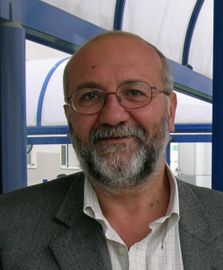 Pier Giuseppe Pelicci MD, PhD - Project Lead
Pier Giuseppe Pelicci MD, PhD - Project Lead
Director, Molecular Mechanisms of Cancer and Aging Unit - European Institute of Oncology
piergiuseppe.pelicci@ieo.eu
+39 02.57489.868
https://www.ieo.it/en/RESEARCH/People/Researchers/Pelicci-Pier-Giuseppe/
Pier Giuseppe Pelicci is Director of Research and Chairman of the Department of Experimental Oncology of the European Institute of Oncology (IEO), in Milan. He is also full professor at the University of Milan, President of the European School of Molecular Medicine (SEMM), and Scientific Director of Alleanza Contro il Cancro (ACC), a network of 25 cancer research hospitals promoted and coordinated by the Ministry of Health, engaged in the set-up of multicentric mechanism–based clinical trials. With a medical degree, a specialty in Internal Medicine and a PhD in Molecular Biology, he devoted his life to research, contributing to seminal discoveries in the elucidation of mechanisms of tumorigenesis (such as the identification /functional characterization of PML-RAR and mutated NPM oncogenes in myeloid leukemia) and the definition of the molecular bases of some of currently used targeted treatments (such as retinoic acid, HDAC- or histone- demethylase inhibitors). More recently, he has been focusing on the biological and molecular characterization of normal and cancer stem cells, in leukemia and breast cancer, and mechanisms of DNA damage accumulation in normal and cancer cells.
Key Investigators: Marco Giorgio, Enrica Migliaccio, Lucilla Luzi, Ivan Dellino
Project Summary:
Aging and associated diseases, including dementia, are known to involve histones modifications that are associated with the transcriptional changes occurring throughout life span. However, a corresponding drift of the histone code has not yet been formally dissected in mammals. In particular, a signature of chromatin remodeling common between aging and Alzheimer’s disease exist is not yet revealed. We have recently described the effect of pro-longevity caloric restriction on histones modifications and we are now comparing this marks with the effects of ketogenic diet that increases life span and may prevent neurodegeneration.
We use chromatin immunoprecipitation sequencing technology to acquire H3K4me3, H3K4me1, H3K27me3 and H3K27ac high-resolution profiles from liver, brain, muscle and blood cells of mouse models and of human samples at different ages or with different signs of cognitive decline. We hypothesize the comparison of these profiles, integrated with those of gene expression and metabolomics obtained in collaboration with the other projects, will disclose the time-depending remodeling of chromatin involved in Alzheimer’s disease that could be partially rescued by a ketogenic diet.
Our work will contribute to the understanding of the role of histone modifications in aging and dementia and will unveil the epigenetic contribution of a beneficial ketogenic diet.